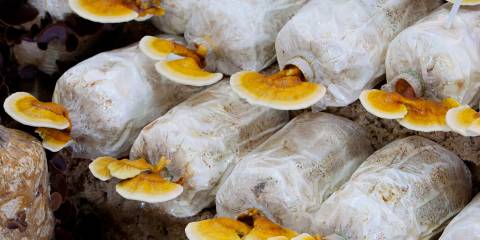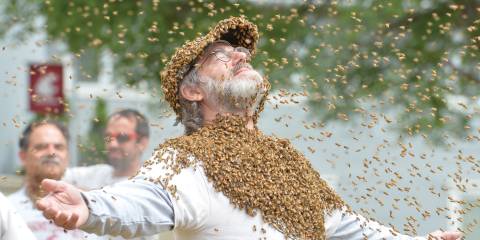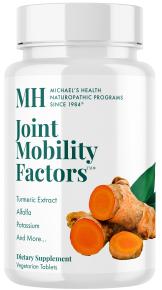In 2018, mycologist Paul Stamets made a commitment for his company, Fungi Perfecti LLC, Makers of Host Defense Mushrooms, to become carbon neutral. But becoming carbon neutral was just a start.
Stamets had founded his company in 1980 with the goal of building the bridge between people and fungi. He sees sustainability efforts as a natural extension of that mission.
“We’ve always limited the overall impact of our business on the environment,” he says. “Now we are increasingly focused on making a positive impact for people and the planet. For us, being carbon neutral isn’t enough.”
Becoming Climate Positive
Fungi Perfecti wanted to go above and beyond being carbon neutral. To that end, it began working with Ostrom Climate, a leading provider of carbon management solutions that uses evidence-based strategies to combat environmental degradation and climate change.
Fungi Perfecti expanded its greenhouse gas reporting of Scopes 1 and 2 emissions to include the very robust Scope 3, as established by the Greenhouse Gas (GHG) Protocol Corporate Standard.
- Scope 1 refers to direct emissions resulting from fuel combustion and from company vehicles.
- Scope 2 includes indirect emissions from heating, cooling, and electricity.
- Scope 3, the most complex scope to measure, covers upstream and downstream emissions, such as shipping and consumables like paper and cardboard.
By using ecologically responsible packaging materials, increasing renewable energy, improving energy efficiency, and sponsoring high impact offset projects, Fungi Perfecti now offsets 10% more emissions than it produces. Its efforts have earned it the Ostrom Climate designation of 110% Climate Positive.
Ecologically Responsible Packaging Material
Host Defense Mushrooms supplements come in a combination of materials, including 100% post-consumer recycled (PCR) plastic for capsule bottles and powder canisters, inert amber glass for extracts and sprays, and up to 85% recycled content cardboard for packaging.
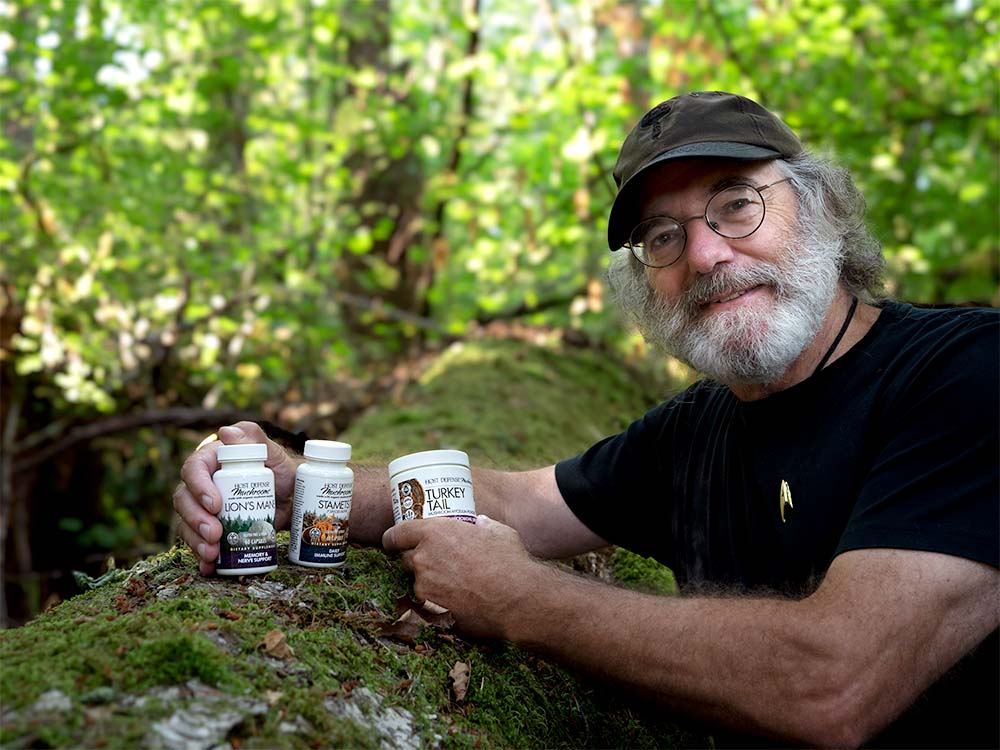
PCR plastic must be special ordered at a much higher cost to the company. In the 2020 Fungi Perfecti Sustainability Report, the company explains that the use of 100% PCR plastic reduces “the demand for petroleum” and decreases “the number of new materials making their way through a linear economy.”
After several years of development, the company also created an innovative custom-crafted material for its MycoBrew beverage packets. The drink mixes come in lightweight, biodegradable cardboard cartons printed with vegetable-based ink.
Renewable Energy
At Fungi Perfecti’s organic farm, where the company’s mushroom fruitbodies and mycelium are grown, a 12 KW grid-tied photovoltaic system was erected on the roof of the main lab. These solar panels produce roughly 3% of the facility’s total electric consumption.
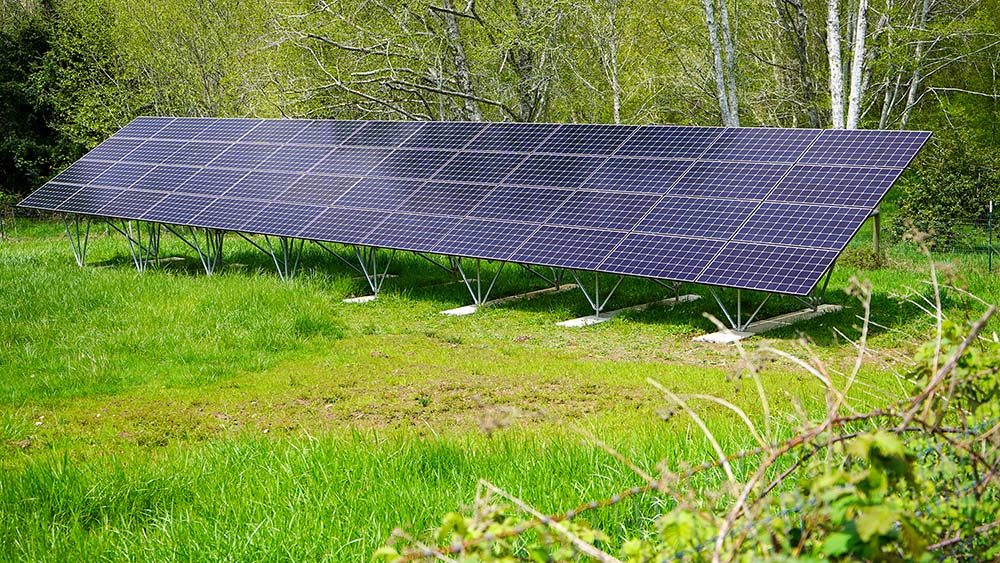
Energy Efficiency
Fungi Perfecti recently consolidated six warehouses into a 30,000 square foot distribution center. In addition to greatly improving operational efficiency, the new building’s better insulation contributed significantly to energy efficiency.
Additionally, the average energy consumption for computer workstations and servers was reduced by roughly 70%. Three tons of e-waste was responsibly recycled.

Offset Projects
With a few exceptions for special projects, Fungi Perfecti sponsors high-impact Gold Standard carbon offset projects. The Gold Standard ensures these projects eliminate carbon emissions and promote sustainable development worldwide.
One example is the purchase of offsets that helped build biogas digesters for rural family farmers in Vietnam. The digesters reuse methane from waste, reducing emissions from this greenhouse gas.
We're In This Together
For Fungi Perfecti and Host Defense, human health and environmental health are inextricably linked.
“Once we understand we are a part of nature, not APART from nature, we can all come together,” Stamets says.
“We share this voyage on Starship Earth, and we must protect the vessel that sustains us.”

